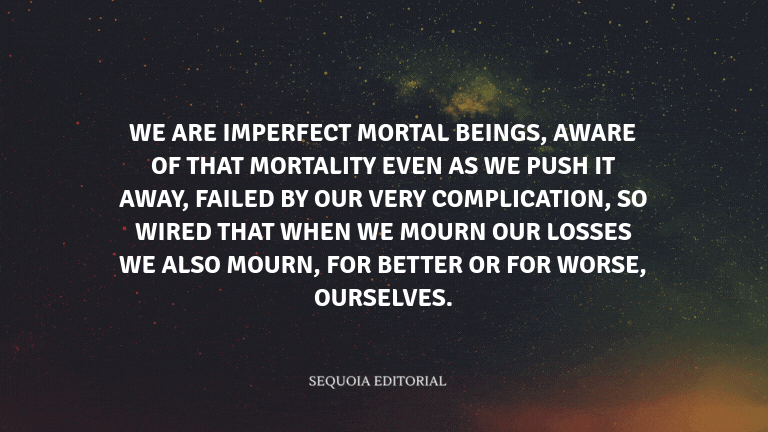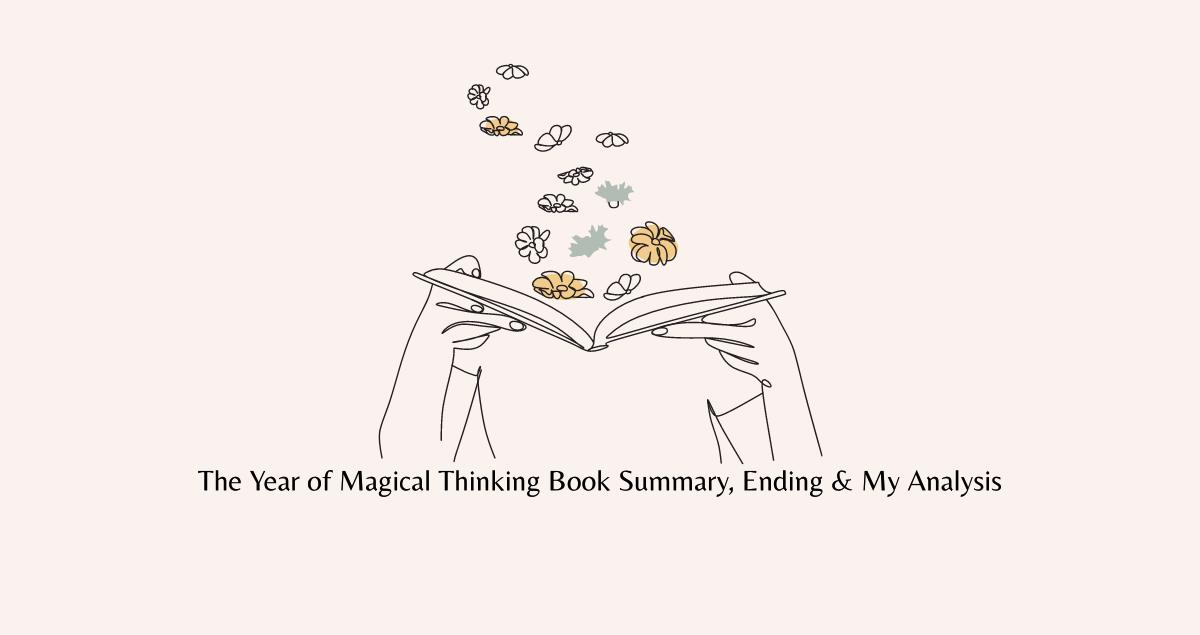The Year Of Magical Thinking is about a profound memoir by Joan Didion, detailing the year following the sudden death of her husband and the serious illness of their only daughter. It delves into the author's experience with grief and how it affects her perception of reality, time, and love. Through deeply personal reflection and meticulous observation, Didion explores the concept of 'magical thinking' and the human mind's natural response to loss.
Table of Content
The Year Of Magical Thinking Book Summary
The Year Of Magical Thinking opens with Joan Didion's husband, John, suddenly collapsing at the dinner table. He dies before an ambulance can reach them. The shock of his loss plunges Joan into a state of disbelief.
Joan and John had been inseparable, working and traveling together for decades. His absence is a rupture beyond her comprehension. She experiences 'magical thinking,' believing he might return or that his death could be reversed.
Shortly after, their daughter, Quintana, falls seriously ill. Joan is now managing both the loss of her husband and the fear of losing her only child. These dual crises lead her to reflect on the nature of time and the arbitrary way in which life changes.
Joan revisits memories of her life with John, the places they've been, and the people they've known. She examines her own childhood and her marriage, trying to find patterns in the events that have shaped her world.
As she grapples with the concept of death and its finality, she goes through John's belongings, unable to accept that he is truly gone. She questions the medical details of his death and looks for signs of his presence in everything around her.
Quintana's illness worsens, and she is placed in a medically induced coma. The hospital becomes a surreal space where time is distorted. Joan's focus shifts constantly between her daughter and the memories of her husband.
She begins to understand the limitations of medical intervention and the randomness of life and death. Her observations are clinical yet deeply personal, revealing her struggle to make sense of the chaos.
When Quintana finally stabilizes, Joan's relief is overshadowed by the realization that John will never return. She confronts the permanence of his absence and the impact it has on her identity and daily routine.
Joan starts to attend bereavement groups, finding solace in the shared experiences of others who have lost loved ones. She acknowledges the universality of grief and the individual nature of each person's mourning process.
The book progresses through the months, each marked by the absence of John and the fragile recovery of Quintana. Joan's reflections become more philosophical, as she contemplates the constructed nature of memory and the stories we tell ourselves to cope with loss.
She examines the medical facts of John's death with increasing detachment, trying to pinpoint the exact moment when he was gone. Her 'magical thinking' shifts into a quest for understanding the physical reality of his passing.
At the end of the year, Quintana is on the road to recovery, and Joan starts to emerge from her grief. She observes the rituals and routines that have sustained her through the darkest period of her life, recognizing their importance in the process of healing.
Reflecting on the concept of 'magical thinking,' she comes to understand it not as a delusion, but as the mind's instinctive response to trauma. It is through these cognitive processes that humans navigate the incomprehensible.
The Year Of Magical Thinking Quotes
- Life changes fast.

- Grief, when it comes, is nothing like we expect it to be.

- We are imperfect mortal beings, aware of that mortality even as we push it away, failed by our very complication, so wired that when we mourn our losses we also mourn, for better or for worse, ourselves.

The Year Of Magical Thinking Ending Explained
At the end of The Year Of Magical Thinking, the year-long journey through Joan Didion's grief and 'magical thinking' comes to a poignant conclusion.
Quintana has recovered, and Joan's attention turns to the practical aspects of life without John. She prepares to move out of their shared home, confronting the physical reminders of her past.
Her reflections on the year reveal a deep transformation. Joan has learned to live with the absence of her husband and the fear of losing her daughter. She recognizes the impact of 'magical thinking' on her psyche and the necessity of allowing herself to grieve in her own way.
Characters in book The Year Of Magical Thinking
- Joan Didion: The author and narrator of the memoir. She is a renowned writer and essayist who recounts the events and emotions during the year after her husband's death.
- John Gregory Dunne: Joan's late husband, a successful writer and her partner for nearly 40 years. His sudden death from a heart attack is the catalyst for the book's exploration of grief and 'magical thinking'.
- Quintana Roo Dunne: Joan and John's only daughter, who falls critically ill shortly after her father's death. Her illness adds a layer of complexity to Joan's grief and the family's struggle.
- Sadie and Olga: Joan and John's close friends who provide support and a sense of continuity during a time of upheaval and loss.
- Gerry: A doctor who attends to Quintana and becomes a significant figure in the family's life during their ordeals.
Key Lessons
- Grief Takes Many Forms: Grieving is an individual process with no set timetable or pattern. It can manifest in 'magical thinking,' a natural attempt to cope with the incomprehensible loss.
- Acceptance is Transformative: Confronting the reality of a loved one's death can lead to a profound personal transformation and acceptance of life's impermanence.
- Memories Shape Our Reality: Memories are not static; they can be reshaped and reinterpreted. Embracing this fluidity can be a source of comfort and growth.
- Community Provides Support: Connecting with others who have experienced loss can offer deep understanding and comfort. The shared experience of grief is a powerful bond.
- Preparation is Practical: Preparing for the practical realities of life after loss is a necessary step in the healing process. It allows for a gradual transition back to daily life.
My Personal Opinion
Is The Year Of Magical Thinking worth reading? I found it to be a deeply moving and thought-provoking memoir. The book resonated with me on a personal level, as it delves into the complexities of grief and the human psyche.
I was struck by Didion's honest and unflinching portrayal of her emotions. At times, the narrative felt fragmented, mirroring the disorienting effects of grief, which I admired for its raw authenticity. On the other hand, this style occasionally made the book challenging to follow.
I would recommend The Year Of Magical Thinking to readers who have experienced loss or are interested in the psychological aspects of grief. It offers a unique perspective on the mourning process and the resilience of the human spirit. This memoir is not a light read, but it is a powerful one that invites reflection and empathy.

